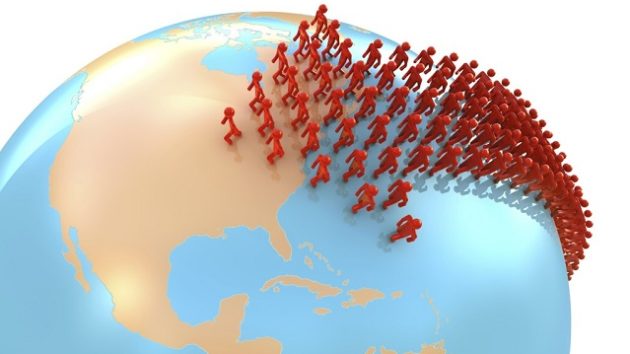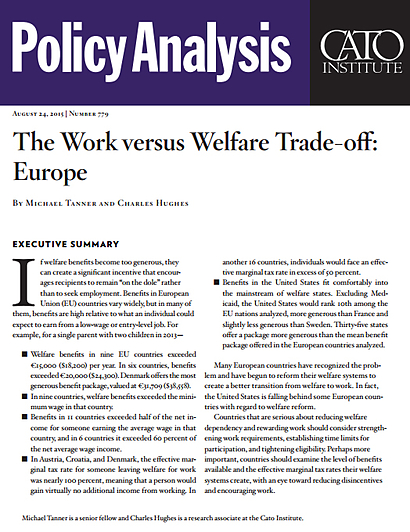Welfare benefits causing Muslim migration to Europe and U.S.
The CATO Institute’s Michael D. Tanner and Charles Hughes in their comprehensive policy analysis titled “The Work versus Welfare Trade-Off: Europe” report:
If welfare benefits become too generous, they can create a significant incentive that encourages recipients to remain “on the dole” rather than to seek employment. Benefits in European Union (EU) countries vary widely, but in many of them, benefits are high relative to what an individual could expect to earn from a low-wage or entry-level job. For example, for a single parent with two children in 2013—
- Welfare benefits in nine EU countries exceeded €15,000 ($18,200) per year. In six countries, benefits exceeded €20,000 ($24,300). Denmark offers the most generous benefit package, valued at €31,709 ($38,558).
- In nine countries, welfare benefits exceeded the minimum wage in that country.
- Benefits in 11 countries exceeded half of the net income for someone earning the average wage in that country, and in 6 countries it exceeded 60 percent of the net average wage income.
- In Austria, Croatia, and Denmark, the effective marginal tax rate for someone leaving welfare for work was nearly 100 percent, meaning that a person would gain virtually no additional income from working. In another 16 countries, individuals would face an effective marginal tax rate in excess of 50 percent.
- Benefits in the United States fit comfortably into the mainstream of welfare states. Excluding Medicaid, the United States would rank 10th among the EU nations analyzed, more generous than France and slightly less generous than Sweden. Thirty-five states offer a package more generous than the mean benefit package offered in the European countries analyzed.
Many European countries have recognized the problem and have begun to reform their welfare systems to create a better transition from welfare to work. In fact, the United States is falling behind some European countries with regard to welfare reform.
Countries that are serious about reducing welfare dependency and rewarding work should consider strengthening work requirements, establishing time limits for participation, and tightening eligibility. Perhaps more important, countries should examine the level of benefits available and the effective marginal tax rates their welfare systems create, with an eye toward reducing disincentives and encouraging work.
Read the full policy analysis buy clicking here.
RELATED ARTICLES:
Center for Immigration Studies: Welfare Use High for Both Legal and Illegal Immigrants
Thanks to Federal Assistance, Low-Income Americans Live in Luxury Apartments in Chicago
Influx of Illegal Alien Minors Energizes Violent U.S. Street Gang MS-13




Leave a Reply
Want to join the discussion?Feel free to contribute!